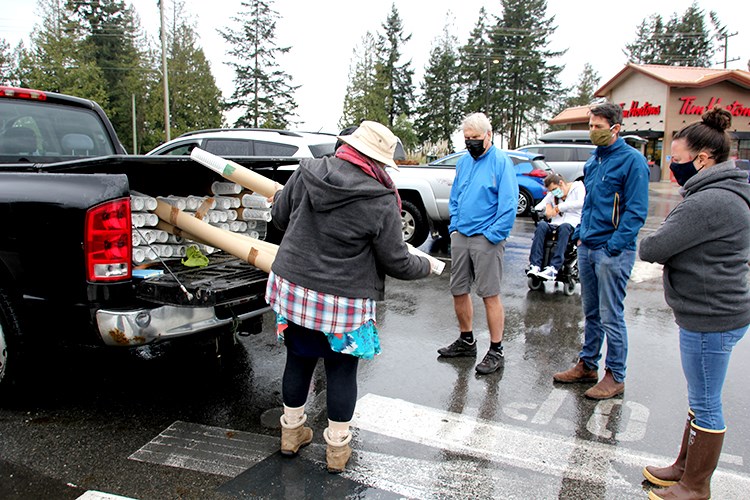On a rainy and windy March afternoon, hundreds of thousands of honeybees met their new caretakers after the longest flight of their short lives.
Hailing from New Zealand, the bees were distributed in tubes in a Sechelt parking lot to members of the Sunshine Coast Beekeepers Association (SCBA). It’s the first time the association has made a group purchase, bringing in 47 packages of approximately 7,000 bees including a newly mated queen in each. That’s a total of 329,000 insects. Around 20 members took their share of the delivery home to introduce into their hives.
Steve Clifford, the president of SCBA, said there is a pent-up demand this year.
In a typical year, beekeepers face winter losses mostly due to two causes on the Coast: German wasps and parasitic mites. Clifford said the mites were particularly hard on local hives this year. New Zealand honeybees are preferred since they’re not impacted by the Africanized bee like California stocks.
Last year, the usual springtime import of honeybees was cancelled as a result of COVID-19. The sudden change in plans meant a shortage in parts of Western Canada, including on the Sunshine Coast. This delivery of honeybees took two airplanes, Clifford said, and the cabin seats were removed to increase space for the packages.
“They're just kind of a little starter,” Clifford said of the packages. “When spring comes and the bloom comes, they can grow tremendously fast. The queen can lay 1,000 [to] 1,500 eggs every day, which means 21 days from then, the hive is gaining that many new bees. So it’s startling how fast they can develop and hopefully, about June they make some surplus honey for their owner.
“The art is to make every colony strong and healthy and productive. And then they make enough for themselves and some for you.”




